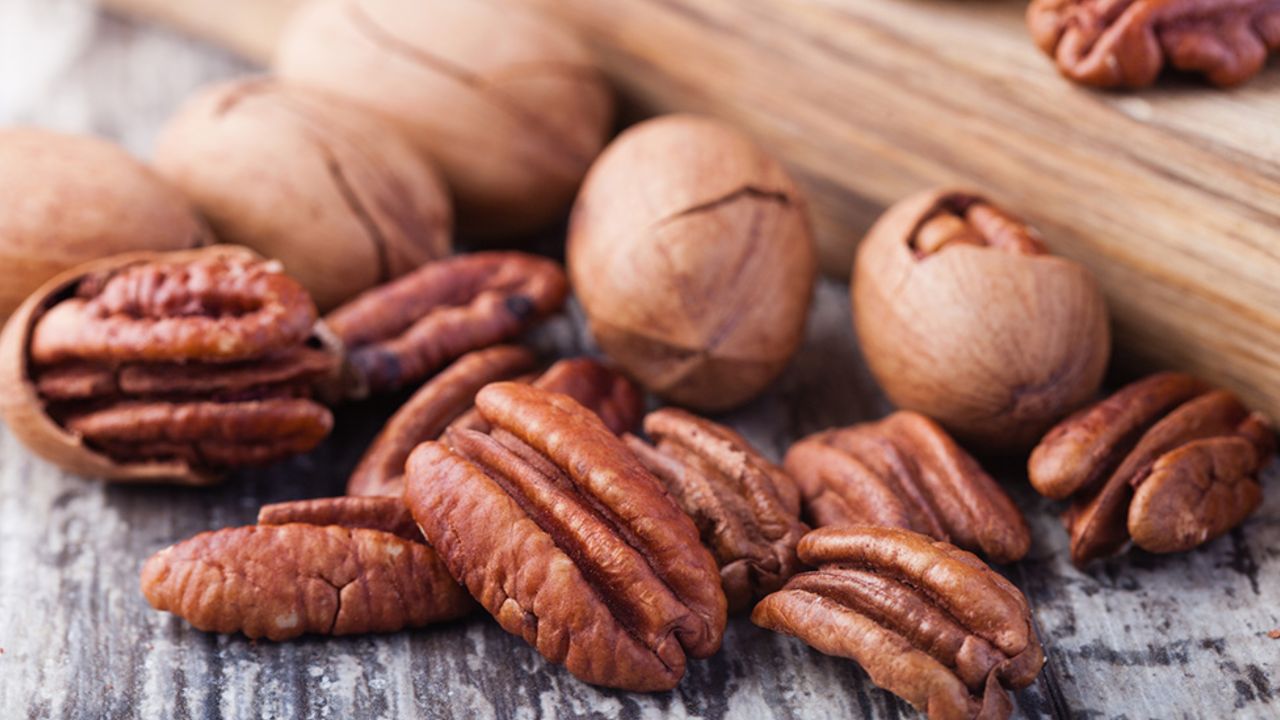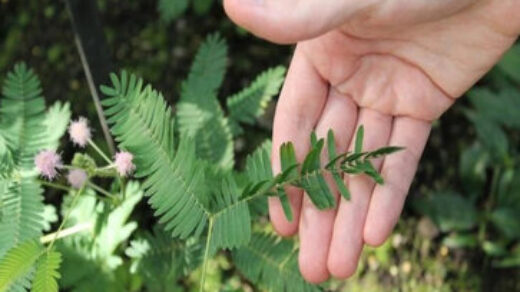Pecans: 10 Science-Backed Health Benefits You’re Missing Out On
Pecans, often called “America’s native nut,” have an important history linked to the country’s Indigenous people and land. They come from the Mississippi River Valley and northern Mexico, where tribes like the Comanche, Choctaw, and Apache used them as a major food source.
These tribes ate pecans raw, ground them into flour, and used the shells for fuel and the wood for tools. The name “pecan” comes from the Algonquin word “pacane,” meaning “a nut that needs a stone to crack.” In the 1500s, Spanish explorers brought pecans to Europe, where they became popular with royalty.
By the 1800s, pecans started being grown commercially in the U.S., especially in Georgia, Texas, and New Mexico, which are still the top producing states today. The U.S. now provides more than 80% of the world’s pecans, with China being a major buyer because people there are becoming more health-conscious.
Pecans grow best in warm climates with good soil. They also help the environment by providing homes for wildlife. There are over 1,000 types of pecans, with popular ones like Desirable, Stuart, and Pawnee varying in size, flavor, and shell thickness. While pecan pie is a classic favorite, pecans are also enjoyed in many dishes around the world, like Mexican pralines and Middle Eastern baklava.
Nutritional Profile of Pecans
Pecans are a nutrient-dense superfood, offering a symphony of macronutrients, micronutrients, and bioactive compounds. A 1-ounce (28g) serving of raw pecans provides:
Calories: 196
Protein: 2.6g (5% DV)
Fat: 20.4g (31% DV)
- Monounsaturated fats (MUFA): 11.5g
- Polyunsaturated fats (PUFA): 6.1g (including 0.3g omega-3 ALA)
Carbohydrates: 3.9g (1% DV)
- Fiber: 2.7g (10% DV)
- Sugars: 1.1g
Micronutrient:
- Vitamin E: 0.4mg (2% DV) – Protects cell membranes from oxidative damage.
- Thiamine (B1): 0.2mg (12% DV) – Essential for converting food into energy.
- Magnesium: 34mg (8% DV) – Supports muscle relaxation and bone health.
- Zinc: 1.3mg (12% DV) – Boosts immune function and wound healing.
- Manganese: 1.3mg (65% DV) – Critical for antioxidant enzyme production.
- Phosphorus: 79mg (8% DV) – Works with calcium to strengthen bones.
Comparative Analysis: Pecans outshine many nuts in antioxidant capacity. For example, they contain twice the flavonoids of almonds and 50% more ellagic acid than walnuts.
Their MUFA content rivals that of olive oil, making them a heart-healthy fat source. Unlike cashews or peanuts, pecans are naturally low in carbohydrates, appealing to keto and low-carb dieters.
Bioactive Compounds:
- Ellagic Acid: A polyphenol with anticancer properties, shown in lab studies to induce apoptosis (cell death) in cancer cells.
- Beta-Sitosterol: A plant sterol that reduces cholesterol absorption in the gut.
- Flavonoids: Such as catechin and epicatechin, which improve vascular function.
Health Benefits of Pecans
Pecans are not only delicious but also packed with essential nutrients that support overall health. From boosting heart health to promoting healthy skin, these nuts offer a wide range of benefits for your well-being. Below are the top 10 health benefits of pecans:
1. Heart Health: Beyond Cholesterol Control
Pecans are a cornerstone of heart-healthy diets like the Mediterranean and DASH diets. Their benefits extend beyond lipid management:
- Endothelial Function: A 2021 study in Journal of the American College of Nutrition found that pecan consumption improved endothelial function (blood vessel flexibility) by 30% in adults with coronary artery disease.
- Triglyceride Reduction: The omega-3 ALA in pecans lowers triglycerides, a risk factor for atherosclerosis.
- Antioxidant Synergy: The combination of vitamin E, ellagic acid, and manganese reduces arterial plaque formation by neutralizing free radicals.
Clinical Spotlight: A landmark 2018 trial published in Nutrients followed 56 adults with obesity who replaced 15% of their daily calories with pecans. After 12 weeks, participants saw a 12% drop in LDL cholesterol and a 9% reduction in systolic blood pressure.
2. Weight Management: The Satiety Secret
Despite their calorie density, pecans promote weight control through:
- Leptin Modulation: The healthy fats in pecans enhance leptin sensitivity, helping the brain recognize fullness.
- Thermic Effect: Protein and fiber require more energy to digest, boosting metabolism by 5–10%.
- Gut-Brain Axis: Fiber fuels gut bacteria that produce short-chain fatty acids (SCFAs), which suppress appetite.
Real-World Impact: In a 2020 study, participants who ate 1.5 ounces of pecans daily for 4 weeks reported 25% fewer cravings for sugary snacks.
3. Antioxidant Powerhouse: Fighting Chronic Disease
Pecans rank #1 among nuts for antioxidant activity, according to the ORAC (Oxygen Radical Absorbance Capacity) scale. Key mechanisms:
- Cancer Prevention: Ellagic acid inhibits DNA binding of carcinogens like nitrosamines. A 2019 review in Molecules linked pecan consumption to a 15% lower risk of breast cancer.
- Anti-Aging: Vitamin E protects skin from UV-induced collagen breakdown, reducing wrinkles.
4. Brain Health: Nourishing the Mind
Pecans’ neuroprotective nutrients include:
- Omega-3 ALA: Converts to DHA in the body, a building block of brain cells.
- Choline: Supports neurotransmitter synthesis (28mg per ounce).
- Zinc: Enhances synaptic plasticity, crucial for learning.
Research Insight: A 2022 study in Frontiers in Aging Neuroscience found that older adults who ate nuts daily had a 40% lower risk of cognitive decline compared to non-consumers.
5. Bone Health: Building a Strong Foundation
Pecans provide a trio of bone-building minerals:
- Magnesium: Activates vitamin D, which enhances calcium absorption.
- Phosphorus: Comprises 50% of bone mineral content.
- Manganese: Produces collagen for bone matrix formation.
Osteoporosis Prevention: Postmenopausal women are at high risk for osteoporosis. A 2023 study in Osteoporosis International showed that a magnesium-rich diet (including pecans) increased bone density by 2% over two years.
6. Digestive Health: Fueling the Gut Microbiome
Pecans’ prebiotic fiber (2.7g per ounce) feeds Bifidobacteria and Lactobacilli, beneficial gut microbes linked to:
- Reduced inflammation
- Enhanced immune function
- Lower risk of colorectal cancer
Gut-Brain Connection: SCFAs like butyrate, produced during fiber fermentation, protect against leaky gut syndrome and improve mood by regulating serotonin production.
7. Skin and Hair: Beauty from Within
- Vitamin E: Repairs UV damage and moisturizes skin.
- Zinc: Regulates sebum production, preventing acne.
- Copper: Promotes melanin synthesis for hair color.
DIY Beauty Treatment: Mix crushed pecans with honey and yogurt for an exfoliating face mask rich in antioxidants.
8. Blood Sugar Regulation: A Natural Ally for Metabolic Health
Pecans are a strategic choice for managing blood sugar levels, particularly for individuals with prediabetes or type 2 diabetes. Their low glycemic index (GI of 10) ensures they release glucose slowly into the bloodstream, avoiding the spikes associated with refined carbohydrates. Three key components drive this benefit:
- Healthy Fats: Monounsaturated fats (MUFAs) in pecans improve insulin sensitivity by reducing fat accumulation in muscle and liver cells, tissues critical for glucose metabolism.
- Fiber: The 2.7g of dietary fiber per ounce slows carbohydrate digestion, moderating post-meal glucose surges.
- Magnesium: This mineral activates enzymes involved in insulin signaling, helping cells efficiently absorb glucose.
A 2023 study in the Journal of Nutrition demonstrated that adults with type 2 diabetes who added 1.5 ounces of pecans to their daily diet saw a 12% reduction in fasting blood glucose and a 9% improvement in HbA1c (a marker of long-term blood sugar control) over 12 weeks. Additionally, the antioxidant gamma-tocopherol (a form of vitamin E) protects pancreatic beta cells from oxidative damage, preserving their ability to produce insulin.
Practical Tip: Pair pecans with high-carb foods (e.g., oatmeal or fruit) to blunt glucose spikes.
9. Immune System Support: Strengthening Defenses Year-Round
Pecans deliver a trio of nutrients essential for robust immune function, making them a valuable addition to diets during cold/flu season or periods of stress:
- Zinc: Critical for the development of white blood cells like neutrophils and T-cells, which target pathogens. A 1-ounce serving provides 12% of the daily zinc requirement—a nutrient often deficient in older adults and vegetarians.
- Vitamin E: Enhances antibody production and protects immune cell membranes from oxidative damage.
- Selenium: Though present in smaller amounts, selenium synergizes with vitamin E to amplify antioxidant defenses and reduce viral replication.
Research in Advances in Nutrition (2021) notes that zinc deficiency impairs immune responses, increasing susceptibility to infections. Regular pecan consumption can help bridge this gap. For example, a study on elderly participants found that diets rich in nuts reduced the incidence of respiratory infections by 22% compared to control groups.
Practical Tip: Add chopped pecans to soups, stir-fries, or yogurt during flu season for an immune-boosting crunch.
10. Anti-Inflammatory Effects: Quieting the Fire Within
Chronic inflammation is a silent driver of diseases like arthritis, heart disease, and even depression. Pecans combat inflammation through a multi-pronged approach:
- Ellagic Acid: Suppresses pro-inflammatory cytokines (e.g., TNF-alpha and IL-6) linked to conditions like rheumatoid arthritis.
- Omega-3 ALA: Converts into specialized pro-resolving mediators (SPMs) like resolvins, which actively “turn off” inflammation.
- Fiber: Feeds gut bacteria that produce butyrate, a short-chain fatty acid that reduces intestinal inflammation.
In a 2021 clinical trial published in Nutrients, obese adults who consumed pecans daily for 8 weeks experienced an 18% drop in C-reactive protein (CRP), a key marker of systemic inflammation. For autoimmune conditions like lupus or psoriasis, this anti-inflammatory effect may translate to reduced symptom severity.
Practical Tip: Aim for 1–2 ounces of pecans daily to harness their anti-inflammatory potential—try blending them into smoothies or pesto.
Potential Risks and Considerations
- Allergies: Tree nut allergies affect 1–2% of adults. Cross-reactivity with walnuts is common. Always check food labels for traces.
- Caloric Intake: Stick to 1 ounce (19 halves) daily. Pre-portion snacks to avoid overeating.
- Oxalate Content: Pecans contain 10mg of oxalates per ounce, which may contribute to kidney stones in susceptible individuals.
- Environmental Impact: Pecan farming is water-intensive (1lb of pecans requires 1,000 gallons). Opt for brands practicing regenerative agriculture.
Storage Tips:
Store shelled pecans in an airtight container in the fridge for up to 9 months or freeze for 2 years. Avoid rancidity by checking for a bitter smell.
Incorporating Pecans into Your Diet
Global Culinary Inspirations
- Southern U.S.: Pecan-crusted catfish with a cornmeal batter.
- Mexico: Calabaza con nuez (pumpkin with pecans in a cinnamon syrup).
- France: Tarte aux noix de pécan (pecan tart with bourbon-infused filling).
- India: Pecan barfi (a fudge-like dessert with cardamom and ghee).
Recipe: Savory Pecan-Stuffed Mushrooms
a simple and delicious recipe for Savory Pecan-Stuffed Mushrooms:
Ingredients:
- 12 large mushroom caps, cleaned and stems removed
- 1/2 cup pecans, chopped
- 1/4 cup breadcrumbs (optional for extra texture)
- 1/4 cup cream cheese, softened
- 2 tablespoons Parmesan cheese, grated
- 1 tablespoon olive oil
- 2 cloves garlic, minced
- 1 tablespoon fresh parsley, chopped (plus extra for garnish)
- 1 teaspoon dried thyme
- Salt and pepper to taste
- 1 tablespoon butter (for sautéing)
Instructions:
- Preheat the Oven: Set your oven to 375°F (190°C) and lightly grease a baking sheet.
- Prepare the Mushrooms: Clean the mushrooms by wiping them with a damp cloth. Remove the stems carefully and set aside for later use in the filling.
Prepare the Filling:
- Finely chop the mushroom stems.
- Heat butter in a skillet over medium heat. Add the chopped mushroom stems and sauté until softened (about 3-4 minutes).
- Add the minced garlic, chopped pecans, and thyme, and sauté for another 2 minutes until fragrant.
Mix the Stuffing: In a bowl, combine the sautéed mushroom mixture with cream cheese, Parmesan cheese, breadcrumbs (if using), and fresh parsley. Season with salt and pepper to taste.
Stuff the Mushrooms: Fill each mushroom cap generously with the pecan mixture, pressing it in gently.
Bake: Place the stuffed mushrooms on the prepared baking sheet and drizzle with olive oil. Bake in the preheated oven for 15-20 minutes, or until the mushrooms are tender and the filling is golden brown.
Garnish and Serve: Garnish with extra fresh parsley and serve warm as a delicious appetizer or side dish.
Enjoy your savory and flavorful Pecan-Stuffed Mushrooms! These are perfect for any occasion or a great addition to your next meal.
FAQ’s
1. What are pecans called in India?
In India, pecans are commonly called “American walnuts” or simply “walnuts.” In Jammu and Kashmir, they are also known as “Khori” or “Shimla Akhrot.”
2. Which is better, walnuts or pecans?
Both walnuts and pecans are healthy, but walnuts have higher levels of omega-3 fatty acids, while pecans are richer in antioxidants. The choice depends on your specific health needs.
3. What are pecan nuts good for?
Pecans are good for heart health, digestion, boosting brain function, and providing antioxidants that help protect your body from damage caused by free radicals.
4. Which is healthier, almonds or pecans?
Both are healthy, but almonds are higher in vitamin E and fiber, while pecans have more monounsaturated fats and antioxidants, which may be better for heart health.
5. What is another name for pecans?
Another name for pecans is “Carya illinoinensis,” the scientific name for the tree that produces them.
6. Is pecan a groundnut?
No, pecans are not groundnuts. Groundnuts (peanuts) grow underground, while pecans grow on trees.
7. How many pecan nuts per day?
A recommended portion size is about 1 ounce (28 grams) of pecans per day, which is roughly 15-20 nuts.
8. Which is more expensive, walnut or pecan?
Pecans are generally more expensive than walnuts due to their more limited growing regions and higher demand in some markets.
9. What are the top 3 healthiest nuts?
The top 3 healthiest nuts are generally considered almonds, walnuts, and pecans due to their high nutrient content and health benefits.
10. Is it safe to eat pecans every day?
Yes, eating pecans every day in moderation is safe and can be beneficial for health, but make sure to watch portion sizes due to their calorie content.
11. How many almonds per day?
A recommended portion size is about 23 almonds (roughly 1 ounce or 28 grams) per day.
12. What is the healthiest fruit?
There is no single “healthiest” fruit, but berries like blueberries, strawberries, and blackberries are often considered among the healthiest due to their high antioxidant content.
13. Do pecans grow in India?
Pecans do not grow widely in India. They are native to North America, with warmer climates such as the southern U.S. being ideal for their growth.
Pecans are a great example of how nature provides us with healthy, tasty food. They help support heart and brain health, and can also add flavor to many dishes, making them a favorite in both science and cooking.
Resources:
- Consuming pecans as a snack improves lipids/lipoproteins and diet quality compared with usual diet in adults at increased risk of cardiometabolic diseases: a randomized controlled trial(1)
- Pecan nuts: A review of reported bioactivities and health effects(2)
- Beneficial Effects of Nut Consumption on Cognitive Function Among Elderly: Findings From a 6-Year Cohort Study(3)
- A Comprehensive Review on Postmenopausal Osteoporosis in Women(4)
- The Cardioprotective Properties of Selected Nuts: Their Functional Ingredients and Molecular Mechanisms(5)
- Zinc deficiency impairs immune responses against parasitic nematode infections at intestinal and systemic sites(6)
- Pecan-enriched diets decrease postprandial lipid peroxidation and increase total antioxidant capacity in adults at-risk for cardiovascular disease(7)


























